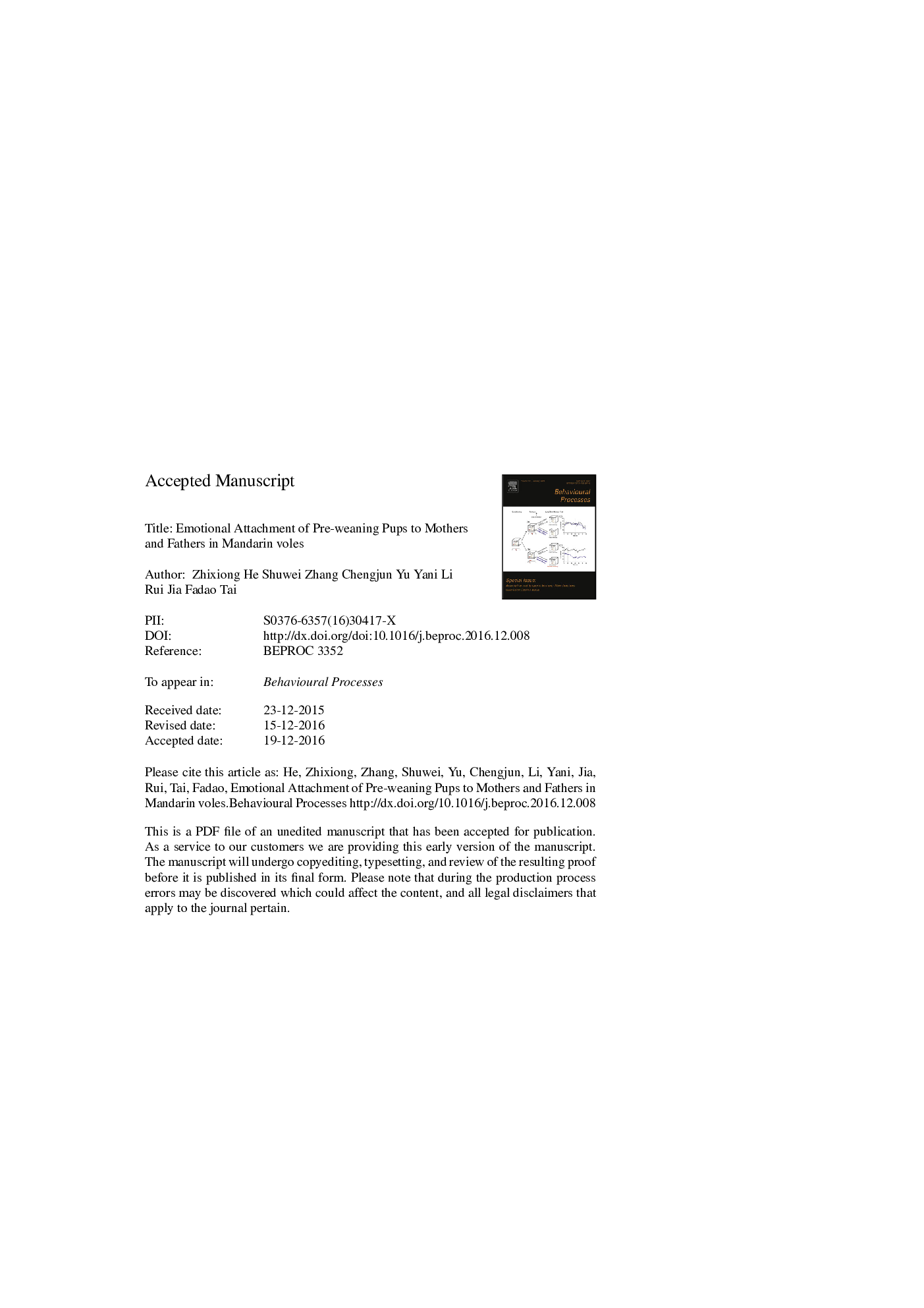| Article ID | Journal | Published Year | Pages | File Type |
|---|---|---|---|---|
| 5539703 | Behavioural Processes | 2017 | 19 Pages |
Abstract
Studies into the effects of maternal and paternal deprivation on the brain and behavior are traditionally done on animals from postnatal day 0 to 14 when parents display high levels of licking and grooming. Deprivation experiments that reveal attachment conducted during this period are confounded because physiological and emotional deprivation occur simultaneously. Whether rodent pups of greater physiological independence from postnatal 14 to 21Â days show emotional attachment towards mothers and fathers remains unclear. Here we establish a new animal model for attachment experiments in animals 14-21Â days old using monogamous mandarin voles (Microtus mandarinus). Levels of emotional attachment of pups from postnatal 14 to 21Â days were measured using preference tests. Pups spent more time in contact with their mothers, more time approaching, sniffing, climbing and walking near their mothers, and emitted more calls on their mother's side compared to an unknown female. They also showed a preference for their fathers over an unknown male. While pups displayed attachment to both their mothers and fathers, levels directed towards mothers were higher in tests when mothers and fathers were presented simultaneously. These results indicate that mandarin voles can be used as an animal model to investigate the effects of early emotional attachment disruption on the adult brain and behavior.
Related Topics
Life Sciences
Agricultural and Biological Sciences
Animal Science and Zoology
Authors
Zhixiong He, Shuwei Zhang, Chengjun Yu, Yani Li, Rui Jia, Fadao Tai,
